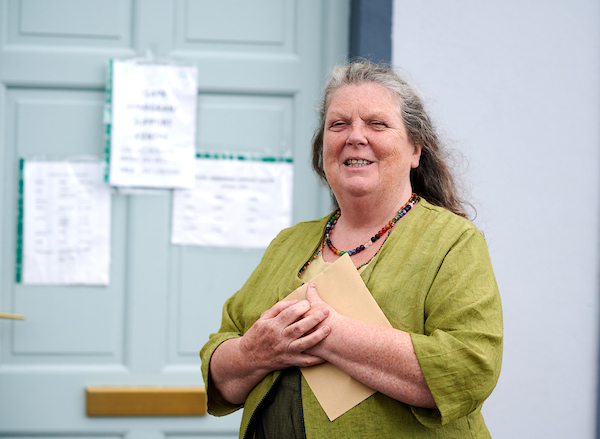THE introduction of a new Regularisation Scheme for Undocumented Migrants will help address the skills shortage in the medical, hospitality and construction industry, according to a local accountant.
The proposed scheme, which is expected to be unveiled by the Department of Justice over the coming weeks, will give migrants unrestricted access to the labour market, and allow them to apply for citizenship later.
David Williams is urging Clare employers to encourage their employees to familiarise themselves and engage with this scheme to help reduce the growing number of vacancies across a number of sectors.
Of the 30 sectors analysed by the IrishJobs.ie Jobs Index in the third quarter of 2021, 24 posted quarterly increases in vacancy generation and 19 surpassed their pre-Covid rate.
In tourism, travel, and airlines, a sector severely impacted by the pandemic and lockdown, vacancies increased by plus 80% quarter-on-quarter and plus 3,607% year-on-year.
Vacancies in construction, architecture, and property rose plus 25% quarter-on-quarter and plus 178% year-on-year.
In addition to working on behalf of the Clare Immigrant Support Centre, Mr Williams of J Williams and Co statutory auditors and accountants, also represents employers who knowingly or unwittingly employ undocumented migrants.
Stating numerous undocumented Irish people are working in the United States of America, the Ennis accountant said we can’t be expecting the US administration to address their plight, if this isn’t reciprocated in Ireland.
Mr Williams pointed out the country has a shortage of general practitioners and nurses as well as vacancies in nursing homes, hospitality and the construction sector.
He said a Nigerian doctor who retired in Shannon still hasn’t been replaced due to a shortage of doctors.
The serious skills shortage, he said, has been exacerbated by the decision of migrants from the accession states to go home and remain in their native country because of the fear of not being able to travel during a Covid-19 lockdown.
“We will need foreign professionals to work in different sectors. A lot of private nursing homes are recruiting staff from India and the Philippines because they can’t get Irish staff.”
He said some employers assumed employees were legally in the country if they had a tax number, but this isn’t always the case, as their initial work permit may have expired.
Minister of State for Business, Employment and Retail, Damien English TD, has announced changes to the employment permits system for workers from outside the European Economic Area (EEA), following a comprehensive review by the Department of Enterprise, Trade and Employment.
Most construction sector jobs are now eligible for a general employment permit. The quota for HGV driver work permits will be removed.
Up to 350 general employment permits for hospitality managers have been approved.
Social workers are eligible for critical skills employment permit, while dispensing opticians are eligible for general employment permit.
New general employment permit quotas for 1,000 horticulture operatives, 500 meat deboners, 1500 meat processing operatives and 100 dairy farm assistants; with a strategic review of labour attraction and retention in the sector to follow.
The precise number of undocumented migrants in Clare remains unknown. However, Clare Immigrant Support Centre co-ordinator, Orla Ni Eili estimates it could run into hundreds out of the estimated 17,000 nationwide.
Ms Ni Eili described the new scheme as a fantastic opportunity for non-EU nationals, some of whom have been working in the county for 15 years, provided they fulfil the criteria to be regularised in Ireland.
Under the new scheme, which was due to be announced a few weeks ago until it was delayed, a single undocumented person will have to be resident and economically independent at least four years, they are of good character, while the time period drops to three years for a family with children.
“It is a wonderful opportunity to bring people in from the shadows. Many migrants have been living, working and contributing as valuable members of society but are terrified to be operating under the radar.
“People end up being undocumented for a myriad of reasons. They may have come to Ireland on a visa that has run out.
“Irish people have relations who are undocumented in the United States of America. It is a very vulnerable position for people to be in, particularly during the Covid-19 pandemic, when these people found themselves in terrible circumstances.
“They weren’t entitled to benefits, even though there was a good scheme provided by the Department of Social Protection for people who had no income. They were terrified about going for vaccination.
“When you are undocumented, the biggest background to your daily life is fear that you are going to get caught. The new scheme will give great security to children and families to legitimately build their lives here.
She pointed out some undocumented migrants who were working in the local economy had PPS numbers, while others had none.
Once the new scheme is rolled out, the Clare Immigrant Support Centre will help migrants to make their applications for inclusion.
When a migrant is regularised, it places the person on a stronger footing to apply for Irish citizenship after a few years.
The Clare Immigrant Support Centre was one of the organisations who engaged extensively with the Department of Justice to ensure the new scheme is as inclusive as possible.
by Dan Danaher

